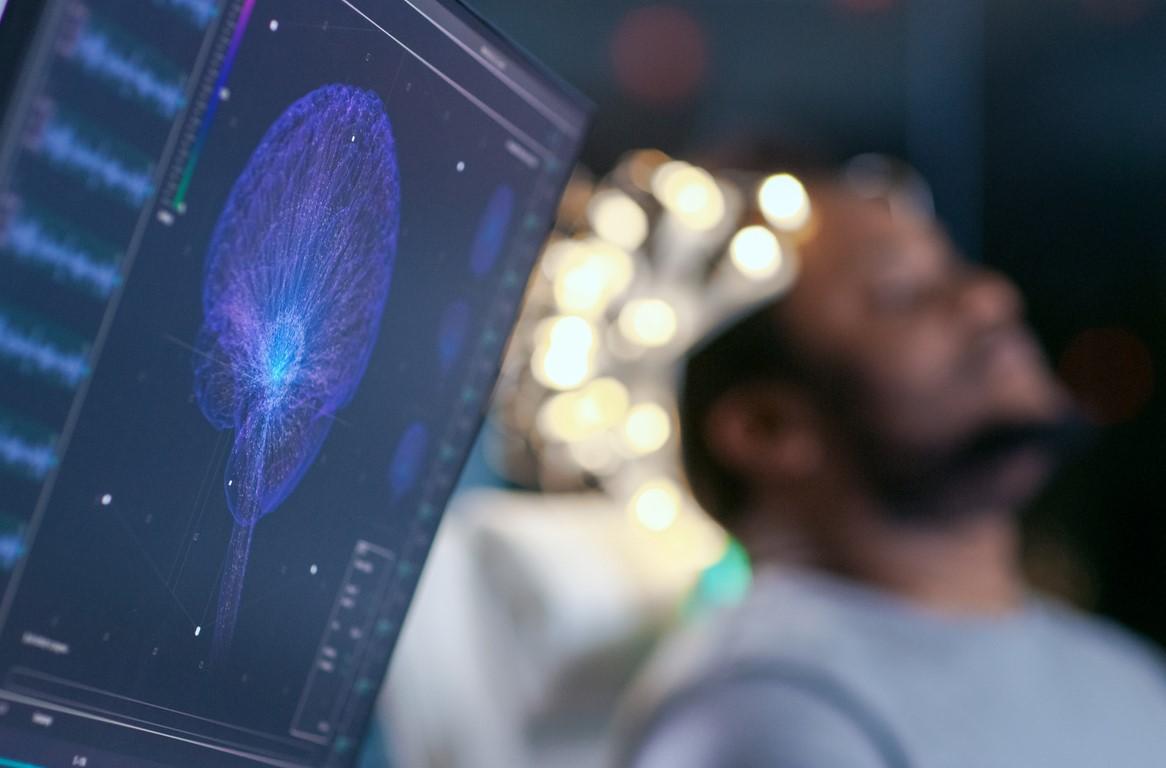Two US monkeypox patients developed encephalomyelitis—inflammation of the brain and spinal cord—in the week after symptom onset, one in Colorado and one in Washington, DC, suggesting neurologic complications are a potential outcome of monkeypox infections. The cases are described today in Morbidity and Mortality Weekly Report.
The United States is home to the largest monkeypox outbreak in the world, with the Centers for Disease Control and Prevention (CDC) today reporting 91 more monkeypox cases, raising the national total to 21,985.
Severe nerve involvement and problems walking
The first case of encephalomyelitis was in an immunocompetent gay man in his 30s in Colorado, with no known monkeypox exposure or international travel. According to the authors, 9 days after symptom onset of fever and rash, the patient developed progressive left arm and leg weakness and numbness, urinary retention, and intermittent priapism, and was hospitalized.
After the onset of neurologic symptoms, the man was treated with Tpoxx (tecovirimat). Persistent weakness in the left leg lasted longer than 1 month, and the man required an assistive walking device.
The patient in Washington, DC, was also an otherwise healthy gay man in his 30s who similarly had no known monkeypox virus (MPXV) exposure or recent travel.
Five days after typical monkeypox symptoms began, he developed bowel and bladder incontinence and progressive flaccid weakness of both legs and was hospitalized. The patient's condition worsened, and he was intubated and admitted to the intensive care unit.
He was treated with oral and intravenous Tpoxx, and later rituximab, a monoclonal antibody medication. After 5 weeks he was discharged from the hospital to an acute inpatient rehabilitation, walking with an assistive device.
"The underlying pathology behind this is unclear but might represent either MPXV invasion of the [central nervous system] or a parainfectious autoimmune process triggered by systemic MPXV infection,” the authors said.
Though rare, such outcomes were seen centuries ago during smallpox outbreaks. The symptom presentation was indicative of acute disseminated encephalomyelitis (ADEM), and inflammation in the brain and spinal cord that damages myelin.
Neither patient had been vaccinated against either smallpox or monkeypox.
LA County man died from monkeypox
A severely immunocompromised man died from monkeypox infection in Los Angeles County, officials announced today. County officials made the confirmation in cooperation with the CDC.
Though his death was the second death in the country reportedly linked to monkeypox infection, this is the first confirmed death due to the virus. Texas health officials are still investigating monkeypox role in the Houston patient's death late last month.
In other US news, Food and Drug Administration officials are warning of a "low barrier to viral resistance" for Tpoxx.
"CDC scientists are actively monitoring for changes in the monkeypox virus that could make the virus less susceptible to Tpoxx," the agency said in an update on the monkeypox response. Because of the potential for the virus to become resistant to Tpoxx, it is important the drug be used in a judicious manner.
Only a single amino acid change in VP37, a protein seen in poxviruses, could lead to resistance, the agency said, and independent reviews have showed the development of resistance in cell-culture studies.






















